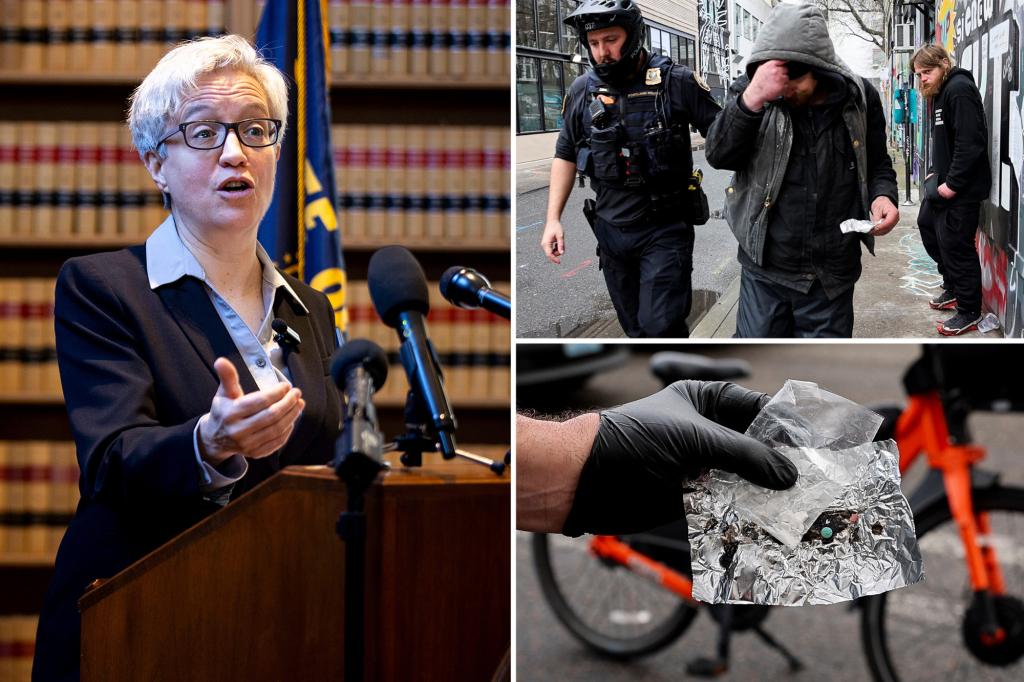Governor Tina Kotek of Oregon signed legislation on Monday to recriminalize the possession of small amounts of certain drugs, ending a legalization experiment that had been backed by voters four years ago. The new law makes possessing drugs like heroin or methamphetamine a misdemeanor punishable by up to six months in prison and allows police to confiscate the drugs from individuals. This move comes in response to a major overdose crisis in the state, which has seen a rise in homelessness, homicides, and overdose deaths since the decriminalization of minor drug possession in 2021.
In 2020, voters in Oregon approved Measure 110, which decriminalized minor possession of personal-use amounts of certain drugs, making it a non-criminal violation similar to receiving a traffic ticket. This measure took effect in February 2021, making Oregon the first state to officially decriminalize minor drug possession. However, since then, the state has seen a spike in opioid overdose deaths, with numbers reaching 628 in 2023 compared to 472 in 2020. Portland also set a new record for murders in 2022 with 101, surpassing the previous year’s mark of 92.
Governor Kotek declared a fentanyl state of emergency in January, acknowledging the severity of the crisis. The new law signed by Kotek, which will take effect on September 1, allows local law enforcement to decide whether to offer violators the opportunity to pursue treatment before being booked into jail. Additionally, Senate Bill 5204, signed by the governor on Monday as well, allocates $211 million to support behavioral health and education programs, including increased access to substance abuse treatment and prevention education.
In a letter to legislative leaders, Governor Kotek emphasized the importance of deep coordination among implementing partners to ensure the success of the policy framework. She also called on the Department of Corrections to establish a consistent approach for supervising individuals upon release from detention and to explore non-jail sanctions for misdemeanor offenders. The focus is on providing resources for treatment and support to address the underlying issues contributing to the overdose crisis and other related challenges in the state.
The move to recriminalize minor drug possession in Oregon marks a significant shift from the previous policy of decriminalization implemented in 2021. The increase in homelessness, homicides, and overdose deaths in the state has prompted this change in approach to address the crisis effectively. By providing funding for behavioral health and education programs, the state aims to improve access to treatment and prevention services for individuals struggling with substance abuse and related issues. Governor Kotek’s emphasis on coordination and support for those involved in the implementation of these programs highlights the collaborative effort needed to combat the ongoing challenges facing Oregon.


